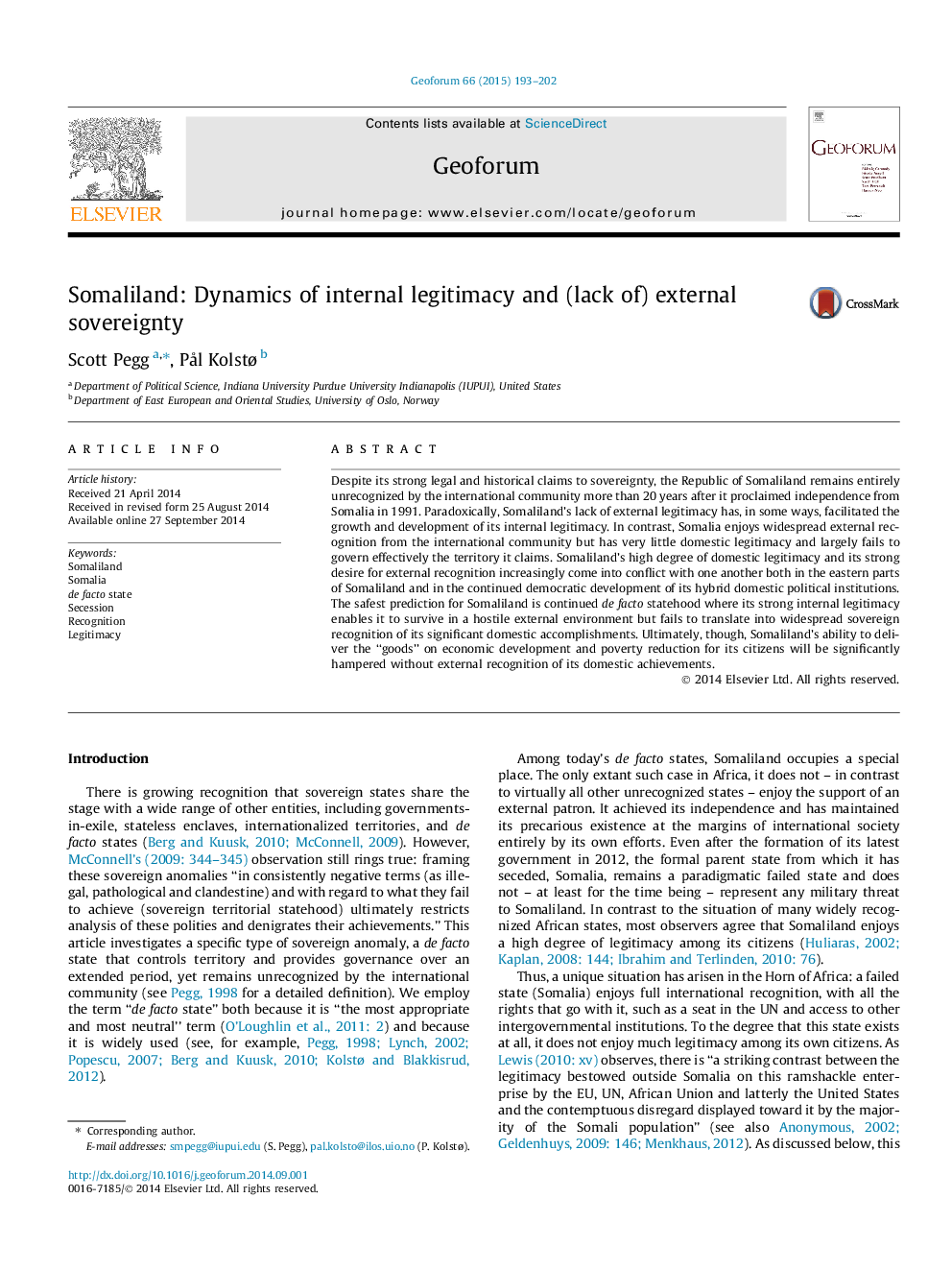| Article ID | Journal | Published Year | Pages | File Type |
|---|---|---|---|---|
| 5073610 | Geoforum | 2015 | 10 Pages |
â¢Despite strong legal claims to sovereignty, Somaliland remains unrecognized.â¢Lack of external legitimacy has facilitated the growth of internal legitimacy.â¢Maintaining internal legitimacy and securing external legitimacy sometimes conflict.â¢De facto statehood, with high internal and low external legitimacy, remains likely.
Despite its strong legal and historical claims to sovereignty, the Republic of Somaliland remains entirely unrecognized by the international community more than 20Â years after it proclaimed independence from Somalia in 1991. Paradoxically, Somaliland's lack of external legitimacy has, in some ways, facilitated the growth and development of its internal legitimacy. In contrast, Somalia enjoys widespread external recognition from the international community but has very little domestic legitimacy and largely fails to govern effectively the territory it claims. Somaliland's high degree of domestic legitimacy and its strong desire for external recognition increasingly come into conflict with one another both in the eastern parts of Somaliland and in the continued democratic development of its hybrid domestic political institutions. The safest prediction for Somaliland is continued de facto statehood where its strong internal legitimacy enables it to survive in a hostile external environment but fails to translate into widespread sovereign recognition of its significant domestic accomplishments. Ultimately, though, Somaliland's ability to deliver the “goods” on economic development and poverty reduction for its citizens will be significantly hampered without external recognition of its domestic achievements.
